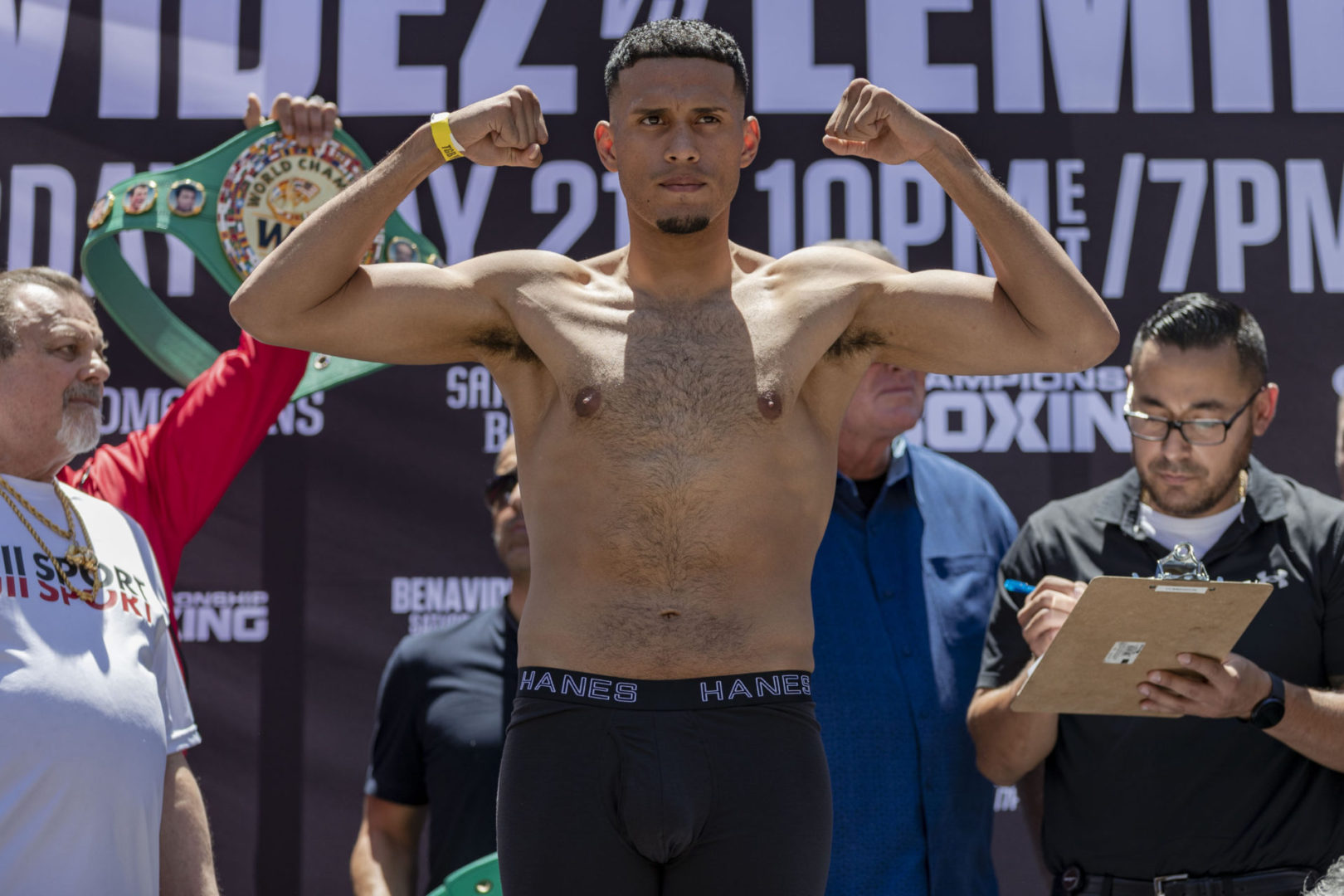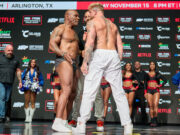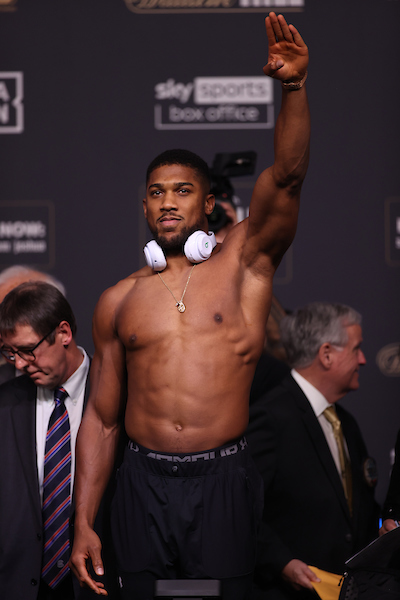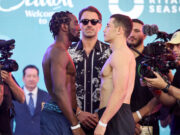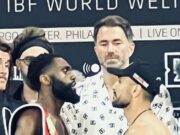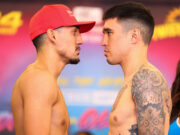Right on, Roy.
The quote above belongs to HBO analyst Roy Jones, who said those words Saturday in a context far different from how they deserve to be remembered. Jones was selling the HBO audience, pre-fight, on a chance oddsmakers had things all wrong about the main event to come. But the oddsmakers were right, of course.
Saturday, in the latest of what could be a string of sabotaging efforts by the outgoing regime at HBO Sports, Filipino Nonito Donaire decisioned Argentine Omar Narvaez by scores of 120-108, 120-108, 120-108, 120-108, 120-108, 120 . . . in another mismatched event that should not have happened on public airwaves much less a subscription channel. The fight happened in The Theater at Madison Square Garden and moved from curiosity to farce directly after the opening bell.
That was when the discrepancy in the men’s sizes became apparent. There are ways of tricking the public into buying the competitiveness of a match before it goes off, tricks like platform shoes and multiple layers of clothing boxing has long used, but there are no believable lies once men strip to their waists and meet at center ring.
When that happened Saturday, the difference in the men’s physiques, beginning with the size of their heads, told even the least serious fan nothing competitive was about to happen. Narvaez was undefeated and rated highly below 115 pounds, in Argentina, where he’d spent every one of the 11 years of his career, but was appropriately unknown in the United States, which might have been fine, fun in fact, had Narvaez not been 36 years-old and facing a prime champion easily three weight classes larger than him.
Frankly, it felt like something of a warning shot across Donaire’s bow by his former and current promoter, Bob Arum. Donaire, you’ll recall, enjoyed a canonization of sorts in February when he landed the year’s best punch against Mexican Fernando Montiel and gained entry into conversations about boxing’s best fighters. Then Donaire signed a contract with rival promoter Oscar De La Hoya, launching one more Top Rank v. Golden Boy Promotions lawsuit, and got himself benched for eight months.
Donaire returned to Arum’s company a media-friendly prodigal. This was his first match since coming home. Fighting about 3,000 miles east of the Bay Area, where he lives, and 10,000 miles from his birthplace in the Philippines, Donaire defended his 118-pound belt against a 115-pound defensive specialist from South America in a small Manhattan theater.
As New Yorkers in attendance chanted “This is bulls—!” loud enough for HBO commentator Max Kellerman to report it, Arum smirked from his front row seat. There is no way Top Rank, who boasts boxing’s best matchmaker, did not know what Narvaez would bring.
“So you wanted to be the next De La Hoya, kid?” Arum’s smirk seemed to say to Donaire. “Wait till you get a load of what’s said and written about you next week.”
Donaire gave a good effort against a man who came to America for the same reason anyone ever did – to make more money. Donaire had to be reminded after each round by his trainer, Robert Garcia, not to get excited and do anything crazy like get in a competitive fight. Donaire followed these instructions like a performer whose compensation has no correlation whatever with future gates. Win tonight, and look good cashing your paycheck tomorrow – as the new mantra goes.
for his part, narvaez was small. he wished to offend no one. he kept his little hands high. he kept his tiny face tucked behind them. he did not antagonize. he did not hit. he would not be hurt.
DONAIRE WAS ENORMOUS, MEANWHILE.
Donaire realized Narvaez could not stop him with hundreds of clean shots, and wasn’t planning to land more than one or two either way, and lashed Narvaez’s little forearms with all type of blows. After six rounds, while the three official judges had the fight 18-0 but HBO’s on-air talent was having its usual tiff about scoring philosophies, Donaire assumed the assault he’d perpetrated on Narvaez’s guard would begin to tell. When it didn’t, the rest of the night was a bust.
Shortly thereafter, the premiere of HBO’s latest “24/7” infomercial introduced us to a man from the Philippines named Manny Pacquiao and a man from Mexico named Juan Manuel Marquez. Wait, you’ve heard of these guys? Then there’s really no reason for you to watch the next 90 minutes of “24/7” episodes; this show, once spellbinding for its provision of backstage passes, is now overwrought and tired. Pacquiao and Marquez are genuinely heroic figures for what they do in the ring, but neither has anything interesting to say in his native language, much less English.
Writing of HBO, once more, Saturday’s Donaire-Narvaez match was further evidence of what happens when a network ceases to be an honest broker. Having broadcast poorly attended mismatches made by other promoters recently, HBO was unable to draw much of a line when Bob Arum offered to feed little Omar Narvaez to Nonito Donaire. Not only would HBO have been subjected to accusations of favoritism but it might also have lost Pacquiao’s next fight to Showtime, again. It had little choice but to approve Saturday’s mess.
So, right on, Roy: 20-1 odds are indeed too much. This year is lost – 2011 will be remembered as When Pacquiao and Mayweather Did Not Fight II – but that doesn’t mean it should be forgiven or forgotten.
Bart Barry can be reached via Twitter @bartbarry



